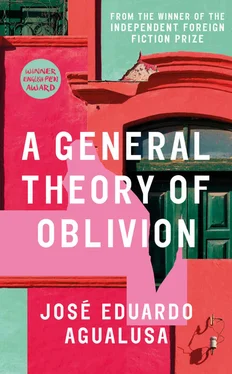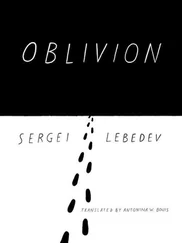‘This one’s going to be a champion, Dad. I’m going to call it Love.’
Love was born with thin legs. It cheeped a lot in the bowl. Its plumage took a long time to appear. Horácio Capitão didn’t hide his displeasure and disgust:
‘We ought to get rid of it, Maria Clara. The blasted creature is never going to be a good flyer. It’s a loser. A pigeon-keeper needs to know how to distinguish between good pigeons and bad pigeons. The bad ones we get rid of, we don’t waste our time on them.’
‘No!’ his daughter insisted. ‘I have complete faith in this pigeon. Love was born to win.’
Love did indeed begin to develop. Unfortunately, it grew too much. Seeing that it was fat, much bigger than the other pigeons from the same brood, Horácio Capitão once again shook his head:
‘We should eat it. Big pigeons only have a chance in speed trials. They’re no good for long distances.’
He was wrong. Love lived up to Maria Clara’s expectations: 1974 and 1975 were glory years, as it proved itself quick and determined, with an ingrained passion for the pigeon house.
‘The son of a bitch is demonstrating an attachment to its territory,’ Horácio Capitão finally acknowledged. ‘Attachment to one’s territory is the main characteristic of a good flyer.’
When he stood at the mirror, Horácio Capitão saw a tall, muscular man, which he was not. Quite the contrary, he was barely over a metre sixty, and had scrawny arms, narrow shoulders, little bird-bones. He never shied away from whatever confronted him, and when he had the chance he would throw the first punch, bearing those of his opponent afterwards, bearing them with great suffering on his fragile flesh, but always rigid as a colossus. He had been born in Luanda to a petit bourgeois, mestizo family, and had only visited Portugal once. This fact notwithstanding, he felt himself to be, in his own words, Portuguese through and through. The April revolution enraged and stunned him. Some days he was more angry, others more stunned, now gazing vacantly into the sky, now railing against the traitors and communists who were planning, shamelessly, to sell Angola to the Soviet Empire. Horrified, he witnessed the start of the civil war and the triumph of the MPLA movement — and of their Cuban allies and the Eastern Bloc. He could have left for Lisbon, like so many others, but he didn’t want to:
‘As long as there’s still a true Portuguese man in this country, Angola will never stop being Portuguese.’
In the months following Independence, he saw the playing out of the tragedies he had prophesied: the flight of the settlers and a good part of the native bourgeoisie, the closing of the factories and small businesses, the collapse of the water and electricity services, as well as the rubbish collection, the mass prisons, the shootings. He stopped spending time at the pigeon house. He spent his days at Biker. ‘Didn’t I tell you?!’ he’d say to the few friends, most of them former civil servants, who still hung around the historic beer hall. He became so irritating, with his repeated insistence on the same old recriminations and the same gloomy premonitions, that after a certain point, the others began referring to him as Didn’t-I-Tell-You.
On one of those rainy cacimbo mornings he opened the newspaper and saw a photo of a rally. He saw, in the foreground, Maria Clara hugging Magno Moreira Monte, and he ran over to show the paper to a one-time informant of the Portuguese political police, Artur Quevedo, who after Independence would end up doing little odd jobs for the new information and security services.
‘Do you know this guy? Who is this guy?’
Quevedo looked at his friend with sympathy.
‘He’s a fanatical communist. The worst of the communists: smart, determined, with a visceral hatred of the Portuguese.’
Horácio rushed home in a panic. His daughter, his little girl, his princess, had fallen into the hands of a subversive. He didn’t know what he’d say to his late wife when he saw her again. His heart sped up as he got closer to the house. His rage began to overcome him. As he opened the front door he was already shouting:
‘Maria Clara!’
His daughter came over from the kitchen, wiping her hands on her apron.
‘Dad?’
‘I want you to start packing your bags. We’re going to Lisbon.’
‘What?!’
Maria Clara had turned seventeen. She had inherited her mother’s tranquil beauty, her father’s bravery and stubbornness. Monte, eight years older than her, had been her Portuguese teacher in 1974, the year of the great euphoria. All Horácio’s flaws were qualities she admired in Monte. She also allowed herself to be seduced by the low voice in which her teacher, in his classes, used to read the lines from José Régio: My life is a gale breaking loose. / It’s a wave that up-rose. / It is one more atom whose excitement grows … / I don’t know where I’m going, / I don’t know which way I’m going. — I know I’m not going there!
The girl took off her apron. She stamped on it, furious.
‘You go, then. I’m staying in my country.’
Horácio slapped her.
‘You’re seventeen years old, and you’re my daughter. You do what I tell you. For now you don’t leave the house, I won’t have you doing anything else stupid.’
He instructed the maid not to let Maria Clara out and he went off to buy plane tickets. He sold the car, for a ridiculous price, to Artur Quevedo and handed him a copy of the keys to the house:
‘Go in every day and open the windows, water the garden, so people think it’s still being lived in. I don’t want the communists occupying the house.’
Maria Clara had for several weeks been using the pigeons to communicate with her lover. Horácio had had the phones disconnected after he’d started receiving anonymous calls and death threats. These threats weren’t connected to any political business. Nothing to do with that. The customs officer suspected some jealous colleague. Monte, meanwhile, travelled a lot, carrying out secret missions, sometimes in combat zones. Maria Clara, who at this point was taking sole care of the pigeon house, would give him three or four pigeons, which he would release, at twilight, with love verses and brief pieces of news tied to their legs.
Maria Clara managed to send, via the maid, a message to a girlfriend, who went off to find Monte. She found him in Viana, investigating rumours about the planning of a military coup involving black officers who were discontented with the prevalence of whites and mestizos at the highest levels of the armed forces. Monte sat down and wrote:
Tomorrow. Six o’clock, usual place. Be very careful. I love you.
He put the message into a little plastic cylinder and fixed it to the right leg of one of the two pigeons he had brought with him. He released the pigeon.
Maria Clara waited in vain for a reply. She cried all night. She made no protest on the way to the airport. She didn’t say a word until they had disembarked in Lisbon. But she didn’t stay long in the Portuguese capital. Five months after turning eighteen she returned to Luanda and married Monte. Horácio swallowed his pride, packed his bags and followed his daughter. He would learn, much later, that his future son-in-law had several times prevented his being thrown in prison, in the stormy years after Independence. He never thanked him. At his funeral, however, he was one of those who shed the most tears.
God weighs souls on a pair of scales. In one of the dishes is the soul, and in the other, the tears of those who weep for it. If nobody cries, the soul goes down to Hell. If there are enough tears, and they are sufficiently heartfelt, it rises up to Heaven. Ludo believed this. Or wanted to believe this. That was what she told Sabalu:
Читать дальше












